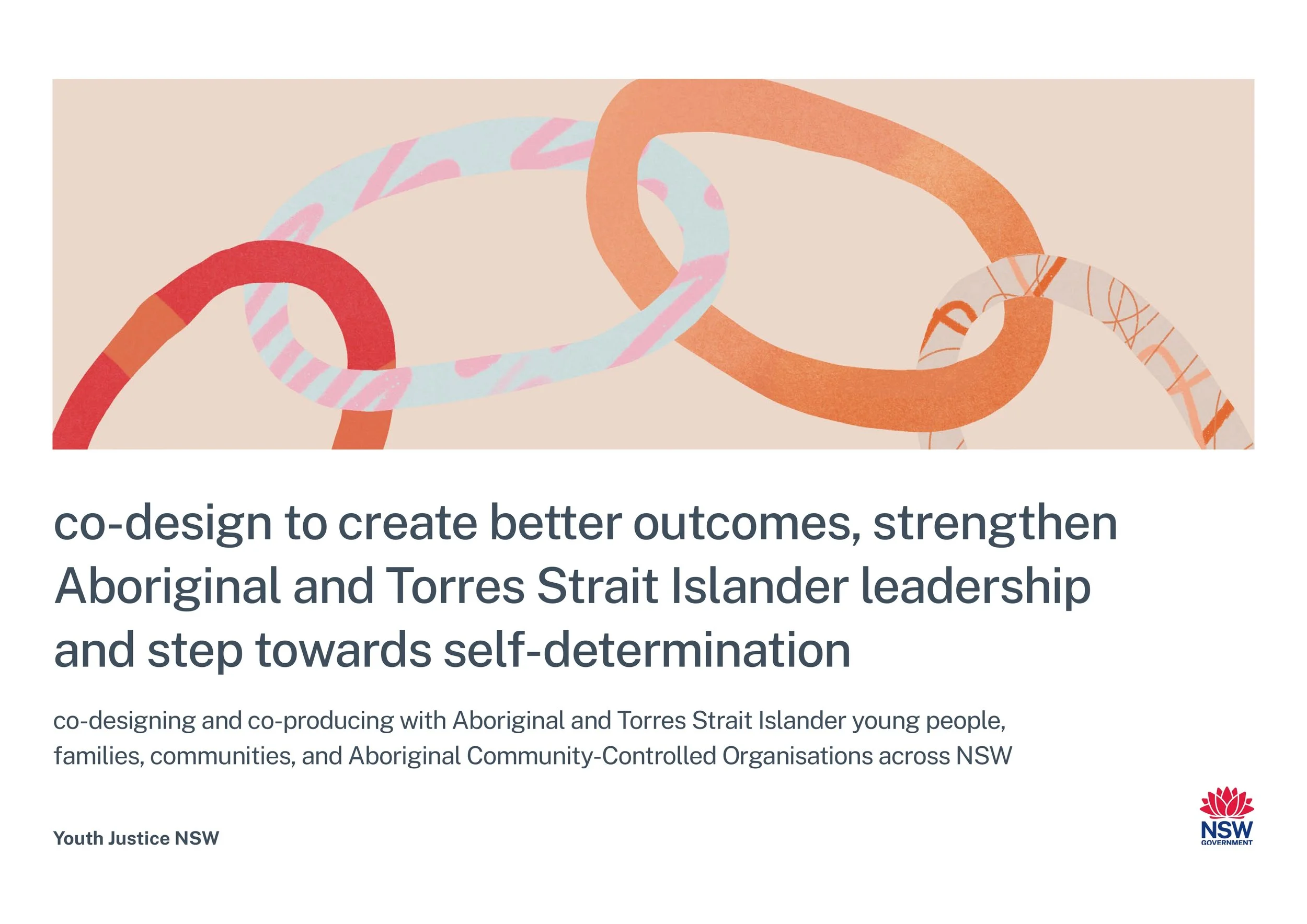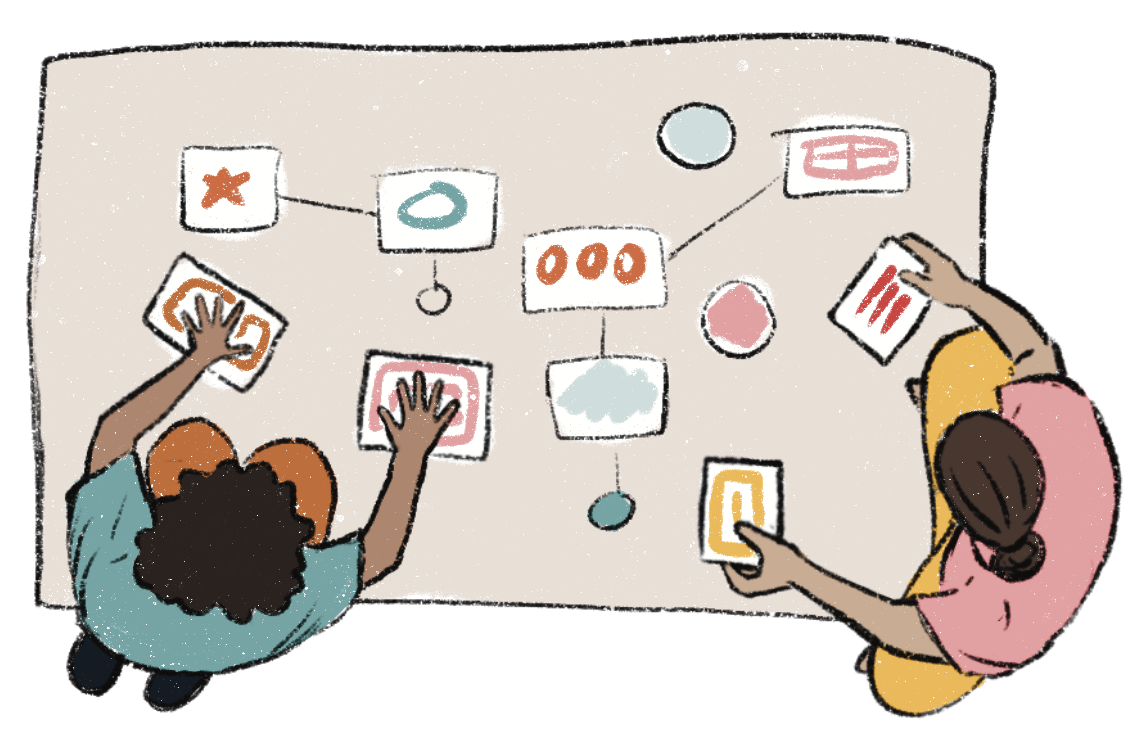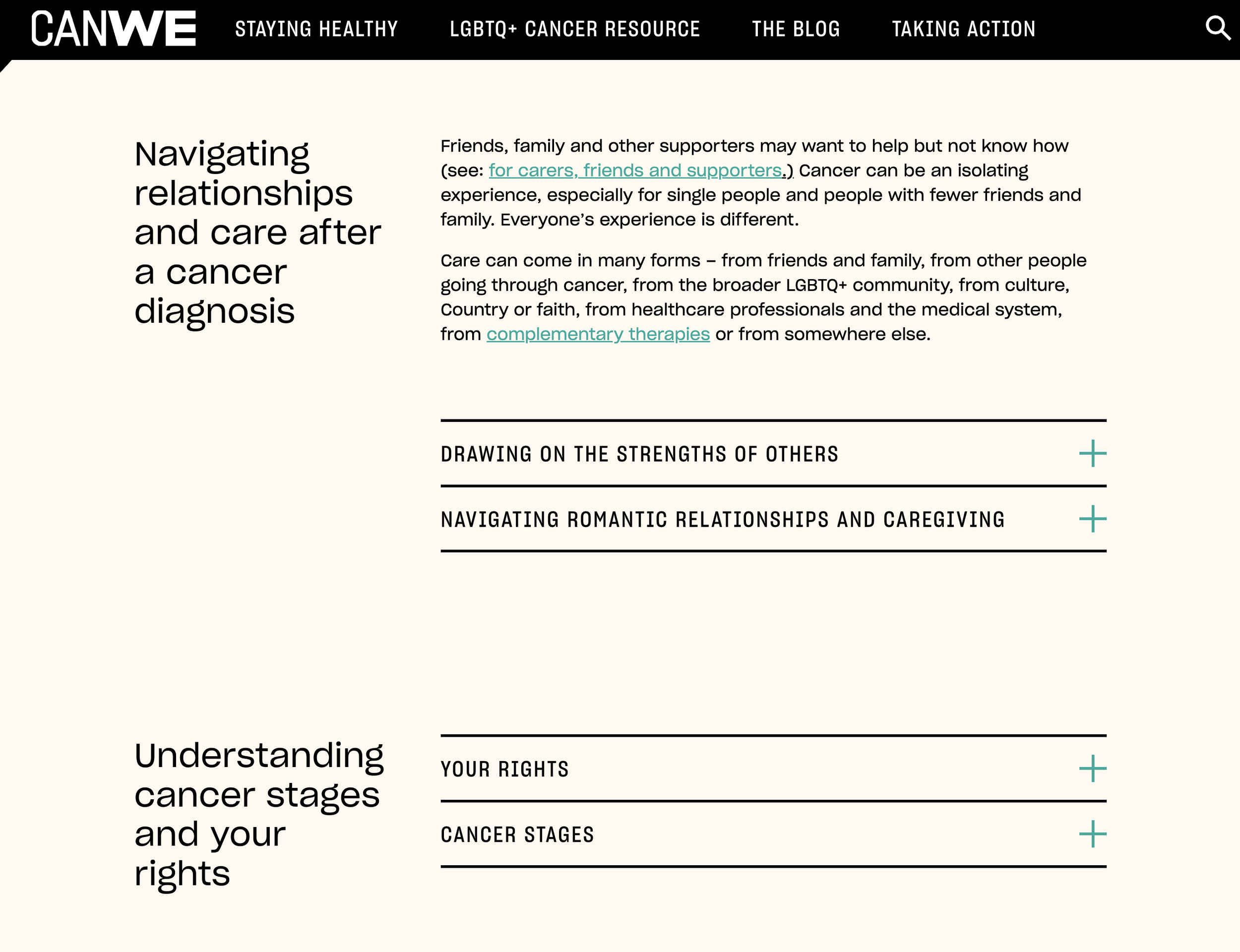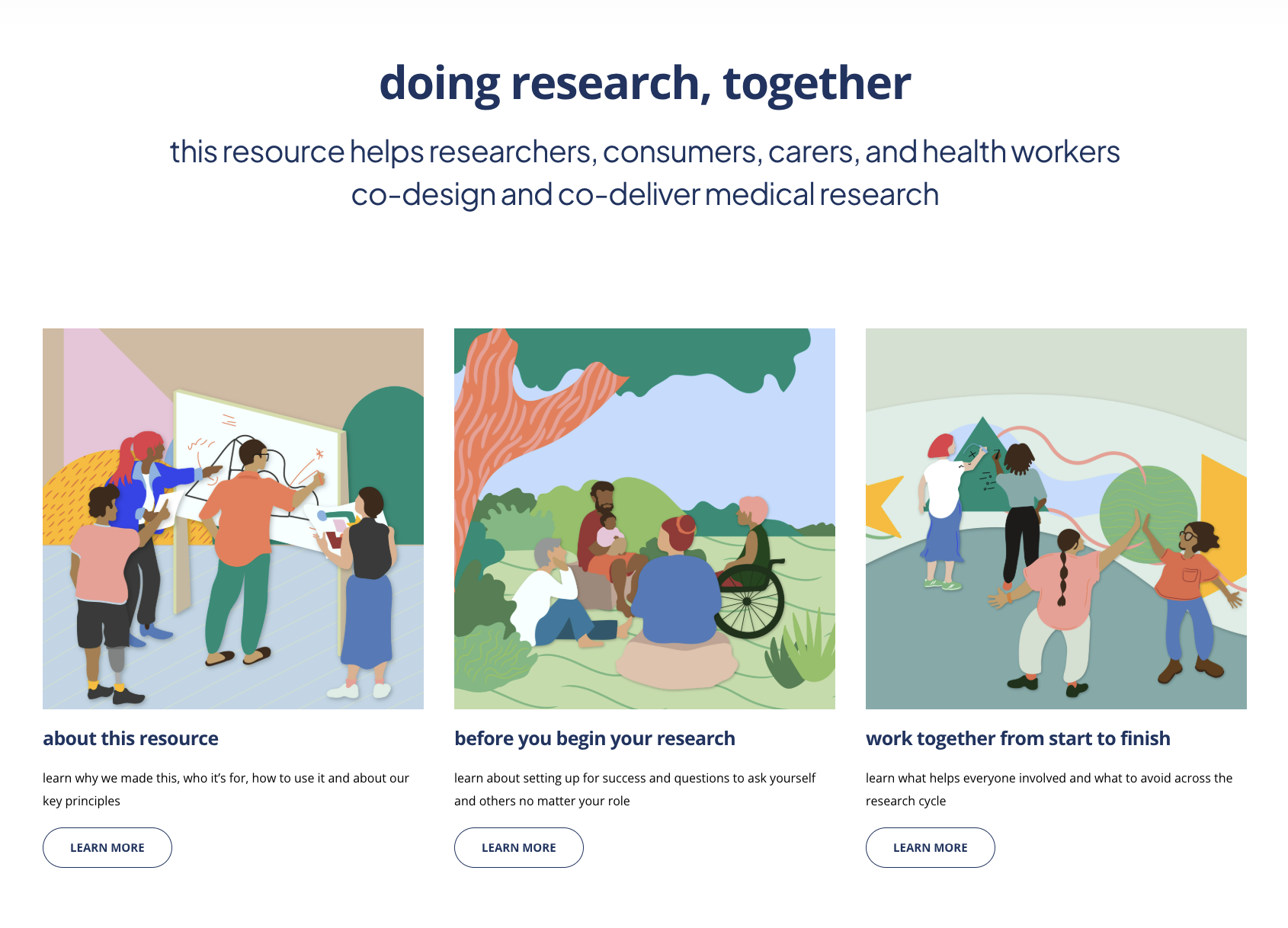Our public work
Below we share some of our public work and encourage you to build from it. 🪜
If you’d like to enquire about doing something simliar (or different) contact us at hello@beyondstickynotes.com
We’d love to hear from you.
co-production flower that includes listening, truth-telling, relationships, accountability and respect
Co-design training and framework development with Youth Justice NSW
Together with Jessie Robinson from Mawang Consulting we worked with the Aboriginal Strategic Coordination Unit in Youth Justice NSW over five sessions to yarn, learn and co-create a framework for co-design and co-production across NSW. Visual design and illustration by Lucy Klippan of Good Point Design.
The 27-page framework includes:
defining co-design in youth justice
understanding when not to co-design (or not yet)
understanding roles and responsibilities
re-framing what we value in government
identifying specific characteristics of co-design
exploring time, pace and place
exploring different ways to power share
understanding where co-design is best.. and more
spectrum includes more enabling of co-design (open ended) to some constraints, to less enabling of co-design (directive)
Aboriginal and Torres Strait Islander peoples have worked together (planned, researched, designed, evaluated) since the first sunrise. Co-design is not new. Approaches to co-design are strengthened through Aboriginal and Torres Strait Islander ways of knowing, being and doing. Co-design, a practice of sharing power, is a big step towards self determination, closing the gap and better outcomes for Aboriginal and Torres Strait Islander peoples (page 2). 🌅
Lisa Congdon’s values cards on a yarning mat with wattle in the middle
Co-design training and resource development with ACON and Shan Watson
After delivering three-part training on co-design to ACON staff, partners and consumers, we worked with Shan Watson from TGD Cancer Support, ACON, people with lived experience of cancer and clinicians to co-develop a resource for LGBTQ+ people with cancer and their supporters.
We created the words and resource structure - ACON did the final visual design.
In this written and audio resource we share community knowledge on:
❤️ diagnosis, before and during treatment and after hospital treatment
❤️ what carers, friends and supporters can do (including five actions)
❤️ specifics for trans and gender diverse people
Alongside LGBTQ+ people with lived experience of cancer or caring for someone with cancer we co-developed a set of principles to guide the design. These principles included:
Using warm, informal, strengths-based and accessible community language (we, us, ours). Co-designers told us that compassionate insider language is ‘an antidote to cold research.’
Making information accessible through audio. We heard it’s hard to read when you’re in cancer treatment. So, we provide audio options.
Including practical and concrete supports – for example, links to support groups, and practical suggestions for friends and family.
Avoiding generic platitudes, patronising language and toxic positivity (for example, ‘battling’, ‘inspiring’, ‘being brave’). We respect where individuals may use these terms for themselves, but we don’t use these terms for our communities.
Helping our communities ask about and understand the long-term impacts of cancer treatment. Many people talked about not having understood the long-term impacts of the ‘poison cure’ before they received treatment. While we’re not trying to deter people from treatment, we want to be honest about the potential impacts of treatment and help people find the information that empowers them to make decisions that are best for them.
Using limited medical references and academic language. Many people involved in creating this resource found academic language alienating. We acknowledge the limits to research and the risks in referencing research that isn’t inclusive of LGBTQ+ experiences, bodies, and relationships.
Including ways to help folks find themselves and community again and anew after cancer. We heard that it’s often not possible to return to who you were before cancer, but that there are ways to find who you are, anew.
Reminding people what makes our communities great – for example, mutual aid, creativity, doing family differently, nonconformity. Bring those qualities to the advice in ‘queering’ this resource.
Framework and tool development with NSW Health
We’re proud to have led the co-development of All of Us: A guide to engaging consumers, carers and communities across NSW Health. All of Us is NSW Health's first state-wide framework for respectful consumer, carer and community engagement. We worked with Sue Muller, the NSW Health Experience team, a great Design Crew, Advisory Group, illustrator Lucy Klippan and 100s of other folks committed to engaging respectfully.
In All of Us you’ll find:
🥙 Six ways of working or 'core ingredients' that need to be in place no matter what we call our work (co-design, consultation or something else).
📺 Videos with consumers, carers and staff talking about what the core ingredients mean to them. Here a page with words and videos on maintaining safety.
📦 Five tools to work together from planning onwards, to ensure access, welcome, hospitality and care. Check them out here.
🗺️ A detailed account of what we did to develop the Guide, step-by-step. Find that here.
All of Us isn’t another static government document. It’s a website with videos, tools and tips for anyone engaging consumers, carers and communities. While it’s been created in and for NSW, we hope it will support practice across Australia and internationally.
If you'd like a video tour of the resource you can find one here.
Research co-design framework and tool development with NSW Regional Health Partners
Together with NSW Regional Health Partners, consumers, researchers, Sue Muller and illustrator Lucy Klippan from Good Point Design we developed a framework doing research together to support researchers and communities. While the framework focuses on health and medical research, we hope it can help other kinds of researchers, too.
Our website builds on NSW Health's All of Us framework and includes:
🤔 questions to ask before you start research
📖 tips for each step of the medical research cycle
🚫 what to avoid in co-designed and co-delivered research
📓 resources, tools, examples and templates
We made one resource so that researchers, consumers, carers and health workers have access to the same tools and language.
Information
Privacy Policy
Terms of Use
The lands we work on are Aboriginal and Torres Strait Islander land. We Pay the Rent and support First Nations Futures. We acknowledge Ancestors and Elders past and present and the many traditions of design, creativity, collective care and innovation that have always been here.
Copyright KA McKercher ©













